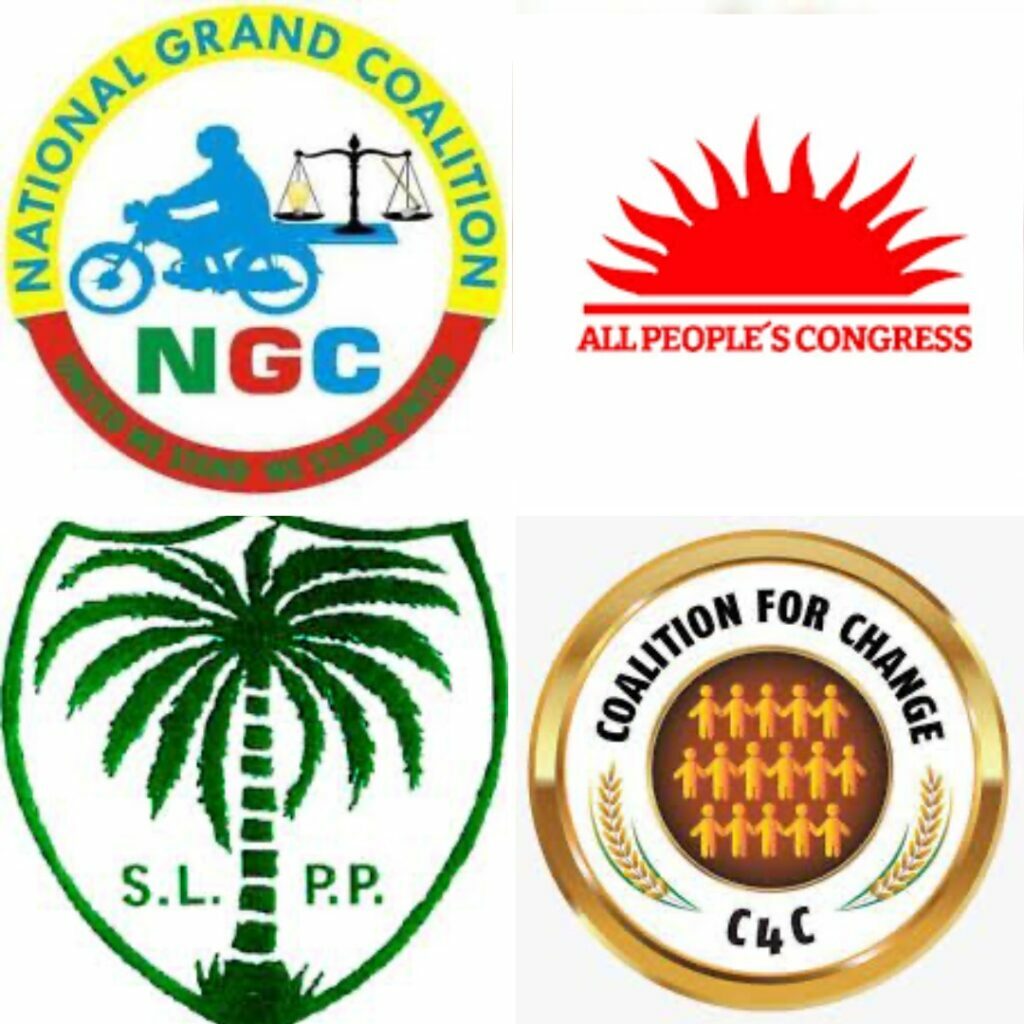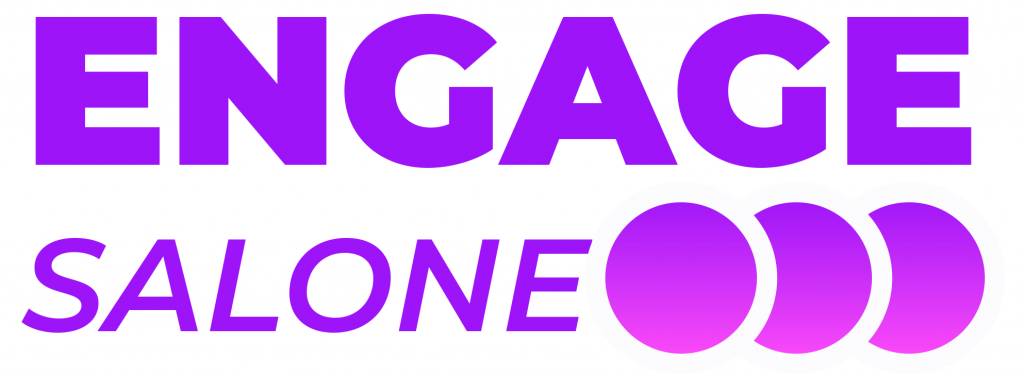In one of our Saturday Editorials last year, we examined the role of political parties in a democracy, highlighting how weak parties in Sierra Leone are part of the country’s political problem. With recent events in the main opposition All People’s Congress (APC) and the National Grand Coalition (NGC) in mind, we are inviting ourselves to revisit the conversation. In this second take on political parties, we will unpack the weaknesses, explain how they affect democracy and highlight the need for institutionalizing political parties.
Those who have followed the history of Sierra Leone’s multi-party democracy can offer a concise genealogy of the opposition curse. Since Independence, political parties, especially those in opposition, have struggled to hold themselves together. Disagreements and fights (most times for control of the party) often lead to splits and endless legal battles. There is a long list of political parties that were products of such unreconcilable differences, the most recent being the People’s Movement for Democratic Change (PMDC) and the National Grand Coalition (NGC). Both parties broke away from the Sierra Leone People’s Party (SLPP). So, intra-party fights are not new and as a matter of fact, can also be dogged and brutish. What we see happening in the APC today is nothing new to those familiar with multiparty politics in Sierra Leone. In 2007, Ernest Bai Koroma had to secure a last-minute court victory to run in the elections after a protracted legal battle with members of his party. The same year, the SLPP also had its own issues which played out in court and that, amongst other issues eventually cost them the elections. We keep in mind the inadequacy of this scanty outline of historical events, but that is the point—as brief as it can be because we want to move on to the substance of the piece.
As the APC’s protracted case continues, with different dimensions to it, many have shrugged them off as na den business bo. These fights have become too familiar, making them seem normal, but they expose serious shortcomings in intra-party democracy and by extension, national democracy. There is a school of thought that suggests that reconciling multiparty politics with the peculiarities of the Sierra Leonean political system is an exercise that is bound to return inherently volatile results. While this might be a plausible explanation, it is unhelpful in the current circumstances because the structure of modern democracy racy is heavily party-reliant. When parties are institutionally weak and further weakened, it is democracy that suffers.
The way we see it, the political parties are very weak bodies that are prone to exploitation and capture. Usually, the people with national-level power and resources wield serious influence on how business is conducted within their parties. The head of state and other top-level state officials, for example, become the people who determine how their parties are run. The president is essentially the supremo with unquestionable powers.
In 2007, Tejan Kabbah gave the SLPP Solomon Berewa—against the will of many party members who ended up leaving. In 2018, Ernest Koroma gave the APC Samura Kamara in a blatant show of absolute power, leaving many people in the party furious and unforgiving. This shows how weak political parties are, and at what cost. In fact, in both examples, the ruling party lost the elections, becoming a victim of their own arrogance, bullishness and lack of functioning internal accountability structures that check the head of state and his people in power. For parties in opposition, it is mostly about those who have the resources to finance the business of the party and former government officials who are looking to make a comeback. To an extent, it is about those brave enough to remain on the ship even as it faces turbulent waters in opposition. In 2018, a courageous Julius Maada Bio fought off very strong opponents within his party before taking on the ruling party. Samura Kamara, his former rival at the polls, did not go away after 2018. He has been hanging around just like Bio did post-2012. And it is highly likely that Kamara will be the APC’s candidate.
Political parties in Sierra Leone are also not designed to withstand dry spells. The parties are often buoyant when they are in power. The moment they are thrown into the opposition wilderness and money stop flowing, they find it extremely hard to survive. A foreigner visiting can easily tell who is in power by looking at the party offices. At that point, they become vulnerable to capture by a few among their ranks and also become susceptible to resignations, “cross-carpeting” and “double-agentism”. This is because outside of power, the parties have nothing else to do. No programmes, no activity, no connection with the people, and no revenue streams, and members do not pay their dues regularly because it is not about loyalty, it is about benefit.
Our political parties also do not often have a soul or spirit. The only two political parties that have managed to survive over time remain the two main parties in the country—SLPP and APC and even they are weak and not very institutionalized. Many other parties that came after struggled to live outside the shadows of their founders. The People’s Democratic Party (PDP) did not “hold sobeh” after Thaimu Bangura. PMDC did not survive their 2007 merger with the APC and since Charles Margai lost his way, the party too got lost. The NGC started unravelling recently after its founder and leader Kandeh Yumkella appeared to have gone on a political meandering that could land him back at the SLPP. That is the point! The parties do not have a spirit.
As we stated in our first piece on political parties, a huge part of the problem in all of this is the lack of organic structures that help institutionalise the parties to function on their own and grow their soul. This is key because it is only when they have resilient structures that they are able to withstand subversion and better handle transition. The APC is where it is today because it is a victim of its endogenous weaknesses and exogenous threats. The NGC is beginning to look like molten ice cream after just one shock. These may all look like political party affairs but they have far-reaching implications for our democracy. Anyone who cares should pay attention to understanding how makeshift our parties are and what it means for democracy. And as we move towards the proportional representation (PR) system, political parties will become even more powerful in our democratic processes. They assume these powers with questionable institutional credentials and safeguards.
We are hoping that the parties see learning opportunities in these challenges and use them to make their outfits better and working democratic institutions because the parties reflect the government we get. And as Alan Hicken writes in a briefing paper on political parties and democracy: “ strong, stable political parties are critical pillars of democracy when they function well.”
About The Author
- Engage Salonehttps://www.engagesalone.org/author/eng21_admin/
- Engage Salonehttps://www.engagesalone.org/author/eng21_admin/
- Engage Salonehttps://www.engagesalone.org/author/eng21_admin/
- Engage Salonehttps://www.engagesalone.org/author/eng21_admin/


